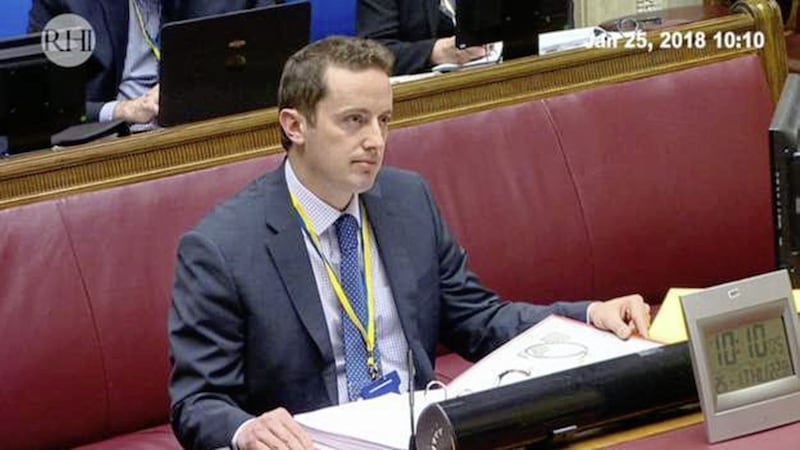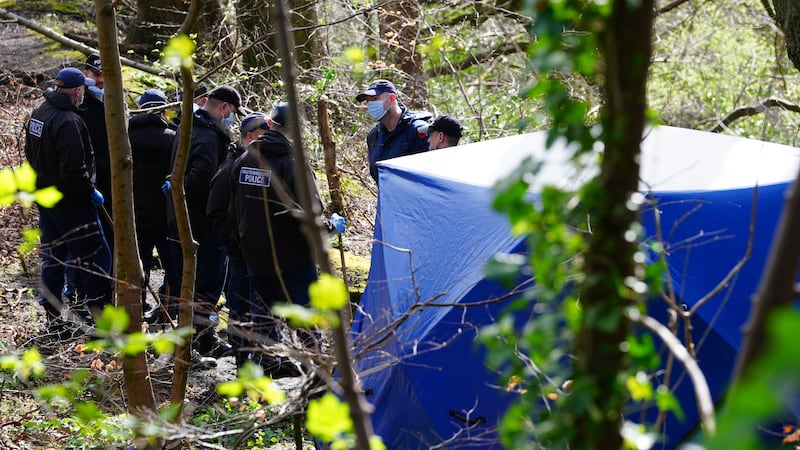AN ECONOMIST was "marking his own homework" on the RHI scheme after he both helped develop the plans and assessed their value for money.
The public inquiry into the botched scheme yesterday heard from Sam Connolly, who worked as an economist at the Department for Enterprise, Trade and Investment (DETI).
His general role within DETI included approving business cases and supporting civil servants working on policies, and he spent around "eleven days" working on the RHI scheme.
Junior counsel for the inquiry, Donal Lunny, said that it could be perceived that Mr Connolly had been "marking his own homework".
Mr Lunny asked: "If you weren't signing it off questions may have been asked as to what you were doing. In how many cases did you refuse to sign off?"
Mr Connolly replied: "I don't think that ever happened. There would be a problem if we were refusing 50 or 60 per cent of projects."
"Why would these projects be advanced to that stage if they were not good....if there was a problem we would rectify it."
Panel member Dame Una O'Brien said that it appeared unusual that an email about the business case was sent to then DETI permanent secretary, David Sterling, before going to the minister - but without having been checked over by the department's economists.
"I see your point there - that is quite odd," Mr Connolly replied.
The economist, who was 30 when he worked on the plans, also said he was too inexperienced for RHI, which he described as a "very complex scheme".
"I don't believe I would have had the experience at that time to appreciate the risks. It was involving concepts and sums of money that were beyond me."
Mr Connolly agreed with an observation by inquiry panellist Dr Keith MacLean that "on the face of it" an up-front grants scheme, the other option considered and dismissed for RHI payments, offered "twice as much value for money".
For the second consecutive day, the inquiry heard details that then DETI minister Arlene Foster was provided with inaccurate figures regarding costs for RHI.
A submission by DETI's energy team to Mrs Foster in June 2011, claiming that a subsidy scheme would be the best option, was based on a draft report by consultants at Cambridge Economic Policy Associates (CEPA) and not its final one, by which time calculations had changed.
Mr Connolly said: "I think the best approach would have been to wait to get the final CEPA report.....there's no excuse for not presenting accurate information to the minister."
Sir Patrick Coghlin, the inquiry chair, said he had "some difficulty" in understanding how Mr Connolly did not "record the fact that the challenge fund was the most value for money".
"I had learnt that the minister had made her decision. It was kind of settled. There was nothing I could do," replied the economist, who is due to return to give further evidence today.








